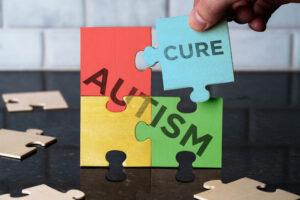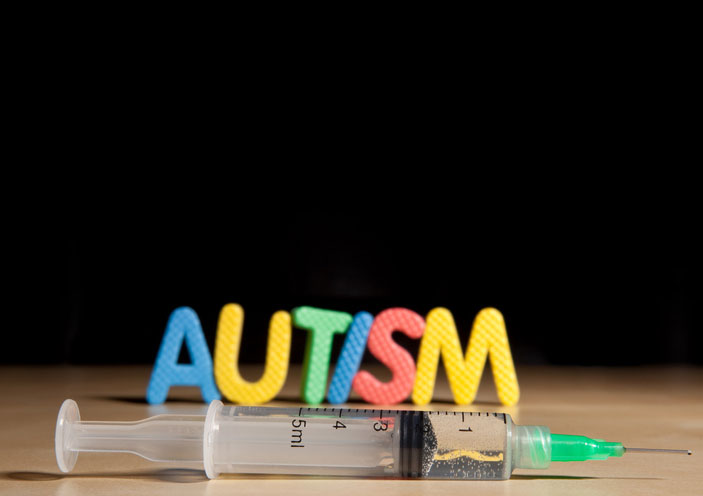What is The Future for ABA Therapy if Vaccines Become The Prime Suspect For ASD?
ABA is a field that offers treatments for dozens or even hundreds of different physical and mental conditions. But if there is a single disability that it’s most associated with, it’s the treatment of Autism Spectrum Disorder (ASD).
More than 6 million Americans experience ASD at some level. As experts in the primary and most effective therapy available for that condition, ABAs are the healthcare professionals who are most involved with caring for that population.
So most ABAs are pretty tuned-in to developments in the world of autism research, diagnosis and treatment. Which means they are watching the troubling developments that come with the appointment of Robert F. Kennedy, Jr. as Secretary of Health… and wondering what they can do about it.
If a Debunked Theory Becomes Mainstream, Could Treatment Also Suffer?
Long before he became a candidate for president, and then Secretary of Health, RFK Jr. was widely known for his fixation on common childhood vaccines as the primary cause of ASD. This is despite decades of research showing no association between the two, and only one or two studies not recognized by the scientific community that purported to link them.
For ABA therapists, causation is often a secondary consideration. Using the ABCs of ABA, they focus on the antecedent, behavior, and consequences for actions taken today, not years past.
As a scientifically-validated treatment for ASD, ABA has been shown to work regardless of what the underlying causes of the disease may be.
But the rub is right in the premise of that sentence: if the concept of scientific-validation is out the window, could ABA fall to the same sort of sentiment that propelled the anti-vaxx movement?
In the near term, the concern is that focusing on vaccines as the cause of autism long after the theory has been debunked could up-end other scientifically validated courses of treatment, including ABA. There is further concern in the ABA community that research into new behavioral treatments and other potential causes could be defunded.
Many ABAs are also likely to be impacted by the gutting of the Department of Education, which oversees IDEA (Individuals with Disabilities in Education) mandates that govern autism treatment in schools.
Could this Put the Autism CARES Act in Jeopardy?
 Most ABAs are familiar with the federal Autism CARES Act, first passed in 2004, which helped kick-start the demand for applied behavior analysts. More than $5.2 billion are allocated through CDC, NIH, and the Health Resources and Services Administration (HRSA) to:
Most ABAs are familiar with the federal Autism CARES Act, first passed in 2004, which helped kick-start the demand for applied behavior analysts. More than $5.2 billion are allocated through CDC, NIH, and the Health Resources and Services Administration (HRSA) to:
- Support autism prevalence tracking and trends
- Fund early intervention programs
- Provide education for healthcare professionals, including ABAs
- Family support services
- Research into ASD causes, diagnosis, treatment, and prevention
Autism CARES was just renewed in December of 2024. The concern now is that the oversight, distribution, and direction of those funds are now in the hands of someone who may disregard the evidence that decades of ABAs and researchers have compiled.
Kennedy’s language around individuals experiencing ASD will also give ABAs pause. The Secretary has in the past claimed that the “brain is gone” in people who have the condition, a statement that any ABA with direct treatment experience can easily refute—patients are people, with their own thoughts, hopes, and ideas. A range of different severity levels makes autism a complex disease and diagnosis, but the vast majority of people with ASD can have full and meaningful lives… with scientifically-proven treatment.
Kennedy also routinely mis-states information around prevalence and rates of occurrence.
This tendency to see the condition in simplistic terms isn’t just bad news for research and treatment. It will also tend to diminish the patients themselves. ASD is hardly the end of everything for those individuals. But if society sees them as profoundly and permanently damaged, many of their opportunities may disappear.
An Anti-Science Ideology Can Only Be Fought With More Science
The CDC has already begun to refocus their efforts around autism on investigating the long-since debunked links to vaccines. Taken together with job cuts at both CDC and the National Institutes Of Health (NIH) that are expected to hit at least ten percent of the job force, this is going to significantly divert resources from treatment and useful research into the condition.
Worse, data that does come from the government may be suspect. One of the first actions taken at CDC was to take down a wide range of previously public data. As that information has been restored, in part, researchers have noticed it is incomplete.
Much of this seems to track back to the new ideological inclination of the regime to deny the existence of transgender and nonbinary individuals. It’s been particularly troubling that inexpert individuals apparently confuse transgenic with transgender, putting completely unrelated lines of genetic research into ASD under threat simply because the words sound alike.
But there’s a more direct and serious threat to autism patients as well. ABAs are well aware that transgender individuals are up to six times more likely to be diagnosed with ASD.
Such individuals are under threat of losing many of their current protections, including some types of gender-affirming medical care. ABA probably doesn’t fall into that bucket, but the overall chilling effect is likely to drive some of these individuals away from treatment entirely. At the very least, the stressors that come from having your identity attacked surely won’t improve any existing ASD symptoms.
Committing To Advanced Studies Offers the Best Shot at Keeping ABA Front and Center in ASD Treatment
 As with any issues of ignorance, education is the best answer to ABAs concerned about the directions that the new regime is taking with ASD treatment.
As with any issues of ignorance, education is the best answer to ABAs concerned about the directions that the new regime is taking with ASD treatment.
Even someone with a bachelor’s degree in applied behavior analysis has a lot of the essential information needed to push back against ASD disinformation. With coursework that covers behavioral science statistics, cognitive psychology, and lifespan development, you graduate armed with all the tools you need to disprove the more outlandish theories people have around autism.
Equally important is the fact that most bachelor’s programs offer direct experience treating patients—so you can get to know and see directly the people behind the labels.
Going further, getting a BCBA (Board Certified Behavior Analyst) credential will require a master’s degree in the field. And at the top of the stack, a BCBA-D (a doctorally-qualified BCBA) means going all the way to a full-on doctoral degree in the field.
The people who hold those PhD in Applied Behavior Analysis degrees will be the key to defending ABA and scientifically-appropriate autism research projects over the coming years. With facts and impeccable research skills behind them, they’ll have the ability to demonstrate that reality still exists, that vaccines are safe, and that ABA and related therapies are the place to look to for solutions in the ASD epidemic.










